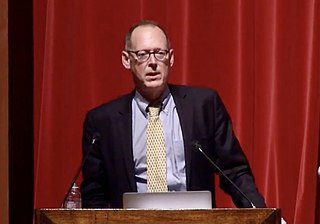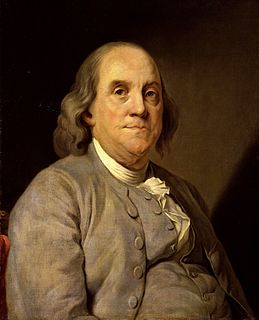Related Research Articles

The British Academy is the United Kingdom's national academy for the humanities and the social sciences. It was established in 1902 and received its royal charter in the same year. It is now a fellowship of more than 1,000 leading scholars spanning all disciplines across the humanities and social sciences and a funding body for research projects across the United Kingdom. The academy is a self-governing and independent registered charity, based at 10–11 Carlton House Terrace in London.

The American Philosophical Society (APS), founded in 1743 in Philadelphia, is a scholarly organization that promotes knowledge in the sciences and humanities through research, professional meetings, publications, library resources, and community outreach. Considered the first learned society in the United States, it has played an important role in American cultural and intellectual life for over 270 years.

The American Academy of Arts and Sciences is one of the oldest learned societies in the United States. It was founded in 1780 during the American Revolution by John Adams, John Hancock, James Bowdoin, Andrew Oliver, and other Founding Fathers of the United States. It is headquartered in Cambridge, Massachusetts.
Bernard Bailyn was an American historian, author, and academic specializing in U.S. Colonial and Revolutionary-era History. He was a professor at Harvard University from 1953. Bailyn won the Pulitzer Prize for History twice. In 1998 the National Endowment for the Humanities selected him for the Jefferson Lecture. He was a recipient of the 2010 National Humanities Medal.

The Royal Society of Canada, also known as the Academies of Arts, Humanities and Sciences of Canada, is the senior national, bilingual council of distinguished Canadian scholars, humanists, scientists and artists. The primary objective of the RSC is to promote learning and research in the arts, the humanities and the sciences. The RSC is Canada's National Academy and exists to promote Canadian research and scholarly accomplishment in both official languages, to recognize academic and artistic excellence, and to advise governments, non-governmental organizations and Canadians on matters of public interest.
The National Endowment for the Humanities (NEH) is an independent federal agency of the U.S. government, established by the National Foundation on the Arts and the Humanities Act of 1965, dedicated to supporting research, education, preservation, and public programs in the humanities. The NEH is housed at 400 7th St SW, Washington, D.C. From 1979 to 2014, NEH was at 1100 Pennsylvania Avenue, N.W., Washington, D.C. in the Nancy Hanks Center at the Old Post Office.
Gerald J. Holton is an American physicist, historian of science, and educator, whose professional interests also include philosophy of science and the fostering of careers of young men and women. He is Mallinckrodt Professor of Physics and Professor of the History of Science Emeritus at Harvard University. His contributions range from physical science and its history to their professional and public understanding, from studies on gender problems and ethics in science careers to those on the role of immigrants. These have been acknowledged by an unusually wide spectrum of appointments and honors, from physics to initiatives in education and other national, societal issues, to contributions for which he was selected, as the first scientist, to give the tenth annual Jefferson Lecture that the National Endowment for the Humanities describes as, “the highest honor the federal government confers for distinguished achievement in the humanities”. However, his life story is also punctuated by improbable rescues during the dark time of the 20th century.

Frederick Chapman Robbins was an American pediatrician and virologist. He was born in Auburn, Alabama, and grew up in Columbia, Missouri, attending David H. Hickman High School.
Ruth Myrtle Patrick was an American botanist and limnologist specializing in diatoms and freshwater ecology. She authored more than 200 scientific papers, developed ways to measure the health of freshwater ecosystems and established numerous research facilities.

Paul Edward Farmer is an American medical anthropologist and physician. Farmer holds an MD and PhD from Harvard University, where he is the Kolokotrones University Professor and the chair of the Department of Global Health and Social Medicine at Harvard Medical School. He is co-founder and chief strategist of Partners In Health (PIH), an international non-profit organization that since 1987 has provided direct health care services and undertaken research and advocacy activities on behalf of those who are sick and living in poverty. He is professor of medicine and chief of the Division of Global Health Equity at Brigham and Women’s Hospital.
Homer Armstrong Thompson was a leading classical archaeologist of the twentieth century, specializing in ancient Greece. While studying for his doctorate at the University of Michigan, Benjamin Dean Meritt would introduce Thompson to the project which would occupy him for the rest of his life. The American School of Classical Studies at Athens was about to begin the excavation of the agora in Athens and Thompson was selected as a fellow of the school to aid in the project. Excavations began on May 25, 1931; Thompson would work on the excavations for the next 39 years. He was married to a fellow archaeologist Dorothy Burr Thompson.

Vincent Joseph Scully Jr. was an American art historian who was a Sterling Professor of the History of Art in Architecture at Yale University, and the author of several books on the subject. Architect Philip Johnson once described Scully as "the most influential architectural teacher ever." His lectures at Yale were known to attract casual visitors and packed houses, and regularly received standing ovations. He was also the Distinguished Visiting Professor in Architecture at the University of Miami.
David Brion Davis was an American intellectual and cultural historian, and a leading authority on slavery and abolition in the Western world. He was a Sterling Professor of History at Yale University, and founder and director of Yale's Gilder Lehrman Center for the Study of Slavery, Resistance, and Abolition.
Jerome John McGann is an American academic and textual scholar whose work focuses on the history of literature and culture from the late eighteenth century to the present.
Thomas Jefferson Medal may refer to several different awards named in honor of Thomas Jefferson:

William Oliver Baker was president of Bell Labs from 1973 to 1979 and advisor on scientific matters to five United States presidents.
Hans Lenk is a German rower who competed for the United Team of Germany in the 1960 Summer Olympics, and an Emeritus Professor of Philosophy. He was born in Berlin.
Bernard MacGregor Walker Knox was an English classicist, author, and critic who became an American citizen. He was the first director of the Center for Hellenic Studies. In 1992 the National Endowment for the Humanities selected Knox for the Jefferson Lecture, the U.S. federal government's highest honor for achievement in the humanities.

The Benjamin Franklin Medal presented by the American Philosophical Society located in Philadelphia, Pennsylvania, U.S.A., also called Benjamin Franklin Bicentennial Medal, is awarded since 1906. The originally called "Philosophical Society" was founded in 1743 by Benjamin Franklin. The award was created to remember the 200th anniversary of the birthday of Franklin. The Museum of Fine Arts in Boston has this medal in his collection.
Evelyn Brooks Higginbotham is a professor of Afro-American Studies, African American Religion and the Victor S. Thomas Professor of History and African American Studies at Harvard University. Higginbotham wrote Righteous Discontent: The Women's Movement in the Black Baptist Church: 1880–1920, which won several awards. She has also received several awards for her work, most notably the 2014 National Humanities Medal.
References
- 1 2 "Thomas Jefferson Medal for Distinguished Achievement in the Arts, Humanities, and Social Sciences". American Philosophical Society. Retrieved 2020-09-02.